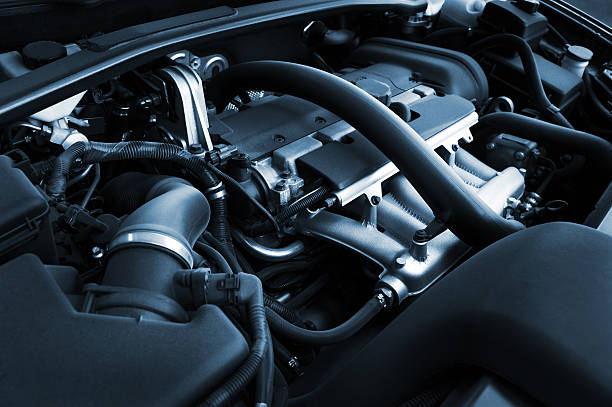Jasper Remanufactured Car Engines Guide - Quality and Cost Information Guide
Jasper remanufactured car engines offer vehicle owners a cost-effective alternative to purchasing brand new engines. These professionally rebuilt powerplants undergo extensive restoration processes to meet original equipment manufacturer specifications. Understanding the quality standards, pricing factors, and benefits of Jasper engines helps consumers make informed decisions when facing engine replacement needs.

When vehicle owners face engine failure or significant mechanical issues, the decision between purchasing a new engine versus a remanufactured unit becomes crucial. Remanufactured engines represent a middle ground between used engines and brand-new units, offering restored performance at reduced costs. The remanufacturing process involves completely disassembling engines, replacing worn components, and rebuilding them to meet original equipment manufacturer specifications.
What Makes Jasper Remanufactured Car Engines Different
Jasper Engines & Transmissions distinguishes itself through comprehensive remanufacturing processes that exceed industry standards. Each engine undergoes complete disassembly, with all components cleaned, inspected, and measured against original specifications. The company replaces pistons, rings, bearings, gaskets, and seals with new parts, while machining engine blocks and cylinder heads to restore proper dimensions. This thorough approach ensures that remanufactured engines perform comparably to new units while maintaining cost advantages.
The company’s quality control measures include computerized testing equipment that verifies engine performance before shipment. Additionally, Jasper provides comprehensive warranties that demonstrate confidence in their remanufacturing processes, offering coverage periods that often exceed those provided by competitors in the aftermarket engine industry.
Quality Standards and Manufacturing Process
The remanufacturing process begins with core engine acquisition, where used engines are collected and evaluated for rebuilding potential. Jasper’s facilities employ automated cleaning systems that remove oil, grease, and carbon deposits from all engine components. Following cleaning, technicians perform detailed inspections using precision measuring equipment to determine which components require replacement or machining.
Cylinder blocks undergo boring and honing procedures to restore proper cylinder dimensions, while crankshafts receive grinding and polishing to eliminate wear patterns. Cylinder heads are pressure-tested for cracks and undergo valve seat machining to ensure proper sealing. The assembly process follows strict torque specifications and includes computerized testing to verify oil pressure, compression, and overall engine performance.
Benefits of Choosing Remanufactured Engines
Remanufactured engines provide several advantages over purchasing used engines or investing in complete engine rebuilds. The controlled manufacturing environment ensures consistent quality standards that individual repair shops may struggle to achieve. Additionally, remanufactured engines typically include updated components that address known design weaknesses in original engines, potentially improving long-term reliability.
Environmental benefits also factor into the decision, as remanufacturing reduces waste by extending the useful life of existing engine components. The process requires significantly less energy than manufacturing new engines while maintaining performance standards that satisfy most vehicle applications.
Cost and Price Influencing Factors for Engine Replacement
Several factors influence the cost of remanufactured engines, including engine size, complexity, and availability of core units. Popular engine configurations typically cost less due to higher production volumes, while specialty or performance engines command premium prices. Labor costs for installation vary by region and shop rates, typically ranging from 8 to 16 hours depending on vehicle accessibility and engine complexity.
Additional costs may include auxiliary components such as water pumps, timing belts, and engine mounts that mechanics recommend replacing during engine installation. Core charges, which are refunded upon return of the old engine, also factor into the total investment required for engine replacement projects.
| Engine Type | Provider | Cost Estimation |
|---|---|---|
| 4-Cylinder Remanufactured | Jasper Engines | $2,500 - $4,000 |
| V6 Remanufactured | Jasper Engines | $3,500 - $5,500 |
| V8 Remanufactured | Jasper Engines | $4,500 - $7,000 |
| 4-Cylinder Remanufactured | Powertrain Products | $2,200 - $3,800 |
| V6 Remanufactured | ATK Engines | $3,200 - $5,200 |
| V8 Remanufactured | Speedway Motors | $4,200 - $6,800 |
Prices, rates, or cost estimates mentioned in this article are based on the latest available information but may change over time. Independent research is advised before making financial decisions.
Warranty coverage represents another significant consideration when evaluating remanufactured engines. Jasper provides warranties ranging from 24 months to unlimited mileage coverage depending on the specific engine and application. These warranties typically cover parts and labor costs associated with engine defects, providing peace of mind that justifies the investment in remanufactured units over used engines with limited or no warranty protection.
Remanufactured engines offer vehicle owners a practical solution for engine replacement needs, combining restored performance with cost savings compared to new engine purchases. The comprehensive remanufacturing processes employed by established companies like Jasper ensure that rebuilt engines meet performance standards while providing warranty protection that supports long-term vehicle reliability. Understanding the factors that influence costs and quality helps consumers make informed decisions when facing engine replacement situations.




